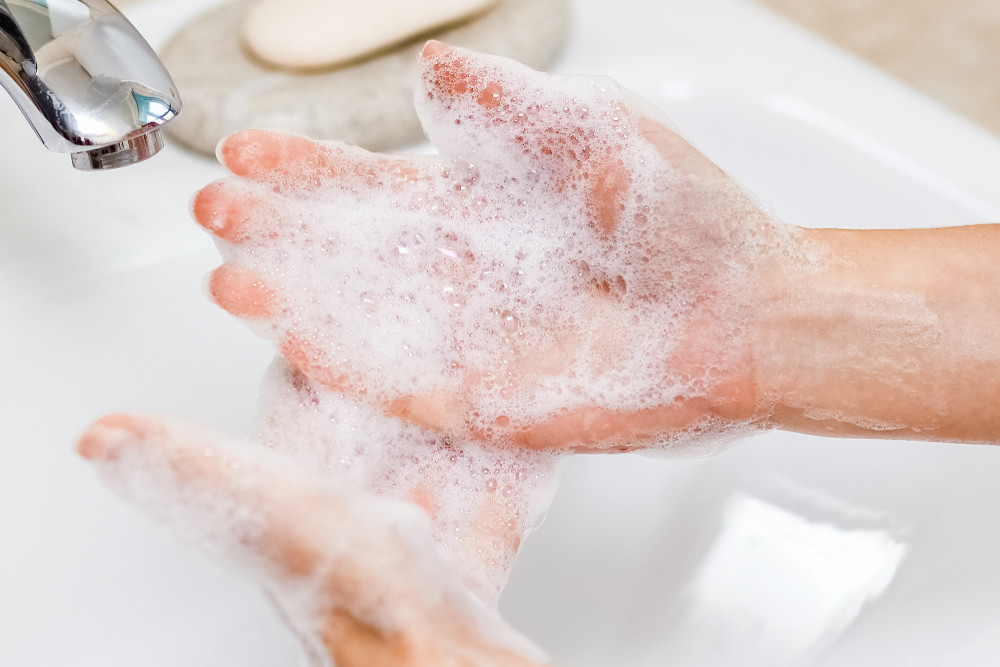Popular Reads
Top Results
Can't find what you're looking for?
View all search resultsPopular Reads
Top Results
Can't find what you're looking for?
View all search resultsThe power to stop COVID-19 is in our hands
Never has hand hygiene been more critical, not only to fight COVID-19, but to prevent a range of other infections.
Change text size
Gift Premium Articles
to Anyone
T
his week, the world hit a grim milestone, surpassing more than 37 million confirmed COVID-19 cases. With the number of infections continuing to rise in many countries, it is clear that the virus will be a part of our lives for longer than we had anticipated.
Faced with so many months of uncertainty, it can be easy to feel fatigued. But given the contagious nature of COVID-19 — and how easily it spreads through touch — there can be no room for complacency on following one of the most basic but effective health measures to stop the spread of a virus: hand hygiene.
Never has hand hygiene been more critical, not only to fight COVID-19, but to prevent a range of other infections.
Handwashing with soap is an easy and affordable solution that everyone should be able to do. It not only protects us from contracting diseases, but also avoids transmission to others, breaking the chain of infection.
But for far too many Indonesians, even this simple act is out of reach. According to official data, 60 million people, or 1 in 4, do not have access to a handwashing facility. All too often, adequate hand hygiene stations are lacking in critical places that need them most, such as health facilities, schools, workplaces and crowded public spaces.
The implications are farreaching and go beyond the current pandemic. In communities that lack basic hygiene, children are disproportionately affected and deprived of a safe environment. Unsanitary living conditions facilitate the spread of respiratory infections as well as diarrhea, which itself is responsible for 25 percent of child deaths every year in Indonesia.
Children who suffer from prolonged bouts of diarrhea are at a much higher risk of stunting and are forced to miss countless school days.
If we are going to control COVID-19 and prevent future childhood deaths, we must make hand hygiene accessible to all. That is why UNICEF and a partnership made up of government, private sector and civil society organizations are calling on all parts of society to make hand hygiene for all a reality in Indonesia.
To achieve this, we need to not only improve access through water supply and physical infrastructure, we also need individual behaviors to change. Handwashing must become an integral part of everyday life at home and in public.
This will not happen overnight. But for the first time, hand hygiene has been prioritized on the political agenda. At a recent official event to mark Global Handwashing Day, 10 ministries came together to deliver a joint declaration that prioritizes handwashing with soap in their respective institutions, signaling an unprecedented commitment to hand hygiene.
We must build on this momentum. Truly, if not now, then when?
The success of any effort to make hand hygiene universal will require leadership and action at every level. All of us — government officials in their offices, staff in health facilities, children at school, families at home and employees at their place of work — have a part to play. Handwashing must become everyone’s business.
The government can lead the way by developing a national roadmap to reach hand hygiene for all. Every ministry should prioritize hand hygiene in the planning and budgeting within their own jurisdictions.
The private sector has a crucial role to play to ensure that employees and customers can safely return to work. Companies must implement and enforce public health protocols and make handwashing facilities available in their offices, factories and staff residential areas.
Businesses can also help the public to improve their handwashing habits. Marketing teams could use their expertise to promote innovative hygiene messaging through multiple platforms, while producers and manufacturers could make hand hygiene more accessible and affordable through product and supply chain innovations.
We can each do our part too. We can all be an example to our children, our neighbors and our friends. Wash your hands every time you enter a public place or return home; seek out handwashing facilities at the places your family visits, and if you do not see them, ask. The more people see others washing their hands or hear them talking about it, the more commonplace it will become.
Crises like COVID-19 can reveal uncomfortable truths and exacerbate existing vulnerabilities. But they can also provide a once in a lifetime opportunity to build a better future. We can use the pandemic to reimagine a society that is safer, resilient and more equal.
This starts with realizing the power of simple soap and water in each of our hands.
If we are going to control COVID-19 and prevent future childhood deaths, we must make hand hygiene accessible to all.
***
UNICEF Indonesia representative









